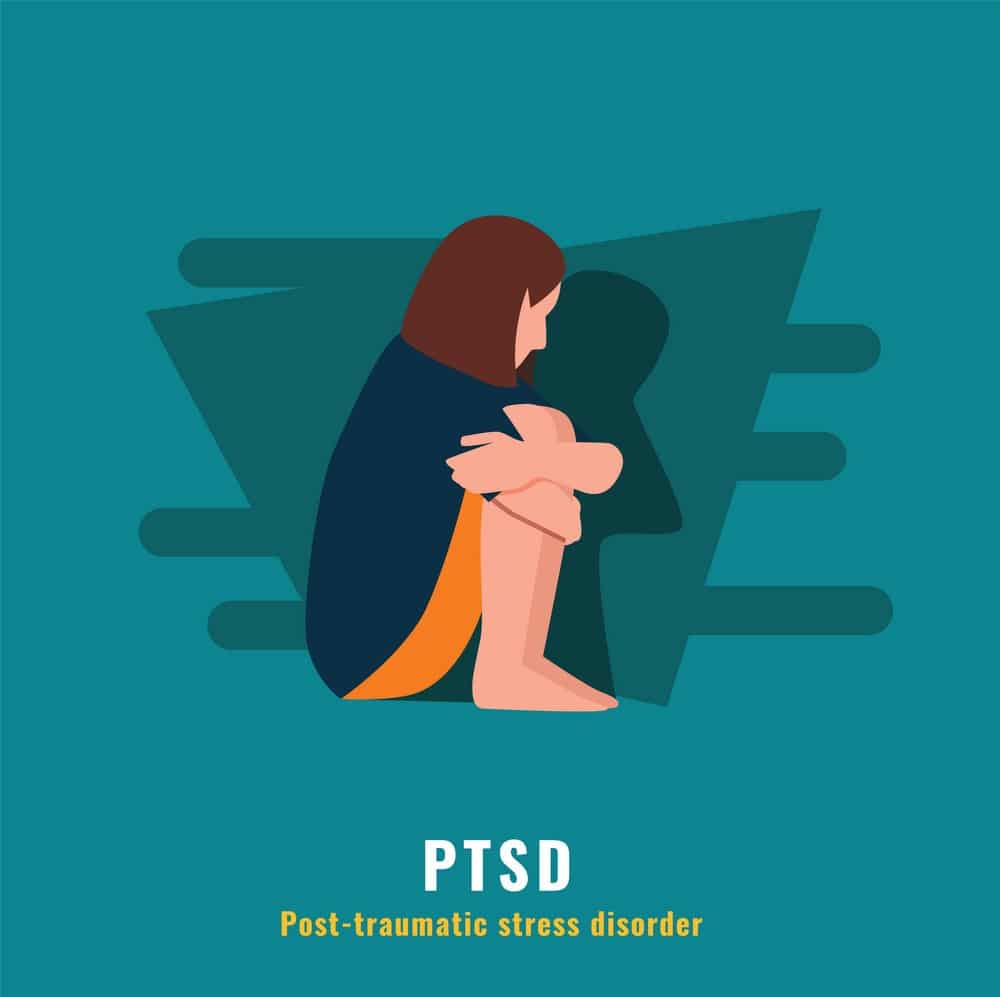Everyone has times in their life where they are challenged physically, emotionally, and psychologically. Often times these challenges are short-lived. Humans are incredibly skilled at adapting and strategizing in times of stress to find solutions. Most people are able to overcome life’s challenges without long term effects. However, when a challenging experience is severely powerful and isn’t short-lived, it can create significant lasting long-term effects. The term for the symptoms after trauma or abuse is post-traumatic stress disorder (PTSD). PTSD has been associated with numerous health problems such as cardiovascular disease, insomnia, hypertension, and generalized anxiety disorder. One condition that is linked to PTSD that is often surprising to people is temporomandibular joint disorder (TMD).
What is TMD?
The TMJ is the joint of the jaw which is located on both sides of the skull just in front of the ears. The TMJ is a complex joint because it is linked by the mandible to both sides of the head, and it allows the mouth to open in both a rotational movement and a sliding movement. TMJ Disorder Syndrome (TMD) is a disharmony of the TMJ complex that creates a variety of painful symptoms in patients. The disorder can involve the joint of the jaw, the muscles, nerves, and/or the teeth. The symptoms of TMJ dysfunction syndrome vary significantly from patient to patient but most often include muscle soreness of the lower face, pain at the joint of the jaw, clicking and popping of the TMJ, headaches, limited jaw opening, grinding of teeth also known as bruxism, and/or jaw fatigue when eating or speaking. The condition can be progressive and even debilitating if it progresses to a point of severity.
How temporomandibular joint dysfunction is related to PTSD
Sometimes the cause of the TMJ dysfunction syndrome is easily diagnosed by the anatomy of the patient. However, there are a variety of risk factors in the patient’s history such as a history of trauma, and chronic stress which sometimes makes diagnosis difficult.
In my review of a literature study completed in 2018, the team analyzed 6 studies completed in the prior 10 years. The results of the review supported that post-traumatic stress disorder often occurs in patients with temporomandibular dysfunction and, at the same time, a higher prevalence of temporomandibular dysfunction is found in individuals with post-traumatic stress disorder. There is a trend for a larger connection between post-traumatic stress disorder and muscular pain than pain in the temporomandibular joint.
Moreover, in a study from 2010, the researchers were interested in studying the effects of intimate partner physical or emotional abuse in patients with chronic pain. In relation to chronic pain, the study concluded that long term the severity of intimate partner psychological abuse was the only abuse variable with significant direct effects on long term chronic pain severity.
Why are TMJ dysfunction syndrome and chronic pain linked to abuse and chronic stress?
The link between chronic pain of TMJ dysfunction syndrome and a history of traumatic psychological history is still being studied. At the time of this writing, the link is not completely understood but a link exists. In layman’s terms, it is believed that chronic stress disrupts the way the peripheral and central nervous system communicate. As we go through our lives , sensations either normal or painful, are received by the peripheral nervous system, and those sensations are relayed to the central nervous system. The central nervous system processes the stimulus and determines if it is either a normal tactile sensation or a painful sensation. It is believed that chronic stress begins to essentially overwhelm this process which over time locks painful stimulus in the central nervous system even if a painful stimulus doesn’t exist. The patient neurologically feels pain from activities that aren’t painful. The history of PTSD and chronic psychological abuse is a risk factor for this neurological chronic pain.
If you are suffering from TMJ dysfunction, dental anxiety, or chronic stress there are options to help. Aesthetic Smile Reconstruction is a leader in TMJ dysfunction and reconstructive dentistry. Their approach is centered on building a comfortable patient relationship to share any information pertinent to their case. Dr. Charles Sutera ensures a judgment-free zone and devotes a large portion of his practice to assisting to improve underlying causes for TMJ dysfunction, chronic pain, and dental anxiety. Contact us– we’d love to meet you.


